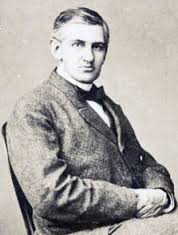I knew there would come a day when I couldn’t sing it.
As a kid, I loved the majesty of the hymn It is Well with My Soul. As life’s harsher realities set in, however, I came to hate it. I strive to be honest, and one Sunday, not only could I not honestly sing it, I wanted to tear it from the hymnal. Except we were not singing from the hymnal. In fact, we were not singing at all. A soloist was singing it — as the benediction. It was to be the good (bene) speech (diction) before leaving the sanctuary and returning into the cruel world of war, famine, disease, car wrecks, extended warranty telemarketing, job stress and divorce.
‘The lyrics tore at my eardrums’
We were seated. As the lyrics tore at my eardrums and drove spikes through my heart in rhythm with the pounding tempo, I began gasping, trying to hold in sobs. A senior adult female beside me laid her hand on top of mine.
The dam broke. I began audibly sobbing. Tears streamed down my face and splashed on the tender hand of a new acquaintance on life’s rugged sojourn.

Horatio Spafford
If you don’t know the story behind the hymn It is Well with My Soul: It was written by Horatio Spafford after his and his wife’s four children died in a shipwreck crossing the Atlantic. Spafford had suffered a tremendous financial loss in the Great Chicago fire in 1871. Needing to rest, he and his family were to take a vacation in Europe. When last-minute business arose, he sent his wife and children ahead, planning to catch up with them a few days later. After being rescued from the shipwreck, his wife telegraphed “Saved alone.” Spafford departed and reportedly penned the lyrics while passing the area where his children drowned.
‘I once made it as far as raising my top-floor dorm window’
When I was in college, referring to the hymn A Hallelujah Christian, my philosophy professor quoted the lyrics “I’m a hallelujah Christian; I’m so happy all the time.” He firmly condemned them as a bald-faced lie. For years I wondered if It is Well with My Soul were not in the same class.
“There were many times I believed things were not well with my soul.”
There were many times I believed things were not well with my soul. I mean, I once made it as far as raising my top-floor dorm window and staring at the concrete below. (I drove to talk to my grandmother instead of jumping.)
I was the eventual student government president and a state champion in speech. No one would have imagined my level of pain. Filling out an intake form at my doctor’s office, I lied. There was no way I was telling anyone — much less my former pastor’s son — how frequently I was contemplating suicide. I was tormented by sadness and anxiety fueled by the acid of perfectionism. I believed I had a troubled soul, and I judged myself harshly — believing real Christians shouldn’t feel this way.
Fortunately, during seminary, a local Presbyterian church had a counseling center that charged a sliding fee based on income, and I began the process of healing my oppressive perfectionistic thinking that fueled my thoughts of “Why try at all?”
More recently, I’ve started asking, “What do my feelings have to do with my soul in the first place?” I mean Spafford did say, “when sorrows like sea billows roll.” He said, “It is well with my soul,” but he was grievously sad.
I was once in a 10-foot boat caught in a sudden storm off the coast of Haiti. I saw sea billows bigger than our boat surging at me and my fellow ferry passengers. I looked for a safe place to swim if our life-jacketless boat capsized, but I saw the waves were crashing into craggy rocks. Another time at the beach, a rogue wave took me to the bottom and rolled me in broken sea shells. Sorrows like sea billows rolling? That is intense pain.
Confusing emotions with the state of our soul
It’s easy to confuse emotions with the state of our soul. In college, I majored in psychology. Psychology spends much time addressing depression and anxiety. The field of positive psychology focuses on happiness. The prefix psyche means “mind” or “soul.” Thus, it’s easy to see why confusion arises regarding emotion and soul.
“It’s easy to confuse emotions with the state of our soul.”
That day in the sanctuary, my emotions were tormented by anxiety and sadness. Seeing my emotions as my soul — rather than an aspect of my soul — I could not say, “It is well with my soul.” The suggestion that I should feel well seemed demeaning to my pain.
How had Horatio Spafford managed it? He must surely have been a callous clod. Fortunately, when the service was over, no one threw platitudes at me. Those around me, who had heard my sobbing, simply hugged me — knowing my situation and that no words would be a balm in that moment. Paradoxically, it was a balm to realize they knew my pain was deeper than words could sooth.
There was something higher and more enduring than my pain. In that moment, there was at least compassion. That was part of the beginning of my revised take on the hymn.
‘What do my emotions have to do with it?’
Another seed of change in my perspective regarding It is Well with My Soul was planted by one of my former students. Mikela Hallmark now works as a therapist in Atlanta and posts motivational videos on social media. In one of her videos, she said she left work one day and didn’t feel like going to the gym. Then she asked herself, “What do my emotions have to do with it? I need to go to the gym. So, I went.”
The student became the teacher. Today, when I catch myself saying “I don’t (emotionally) feel like it,” I ask myself what that has to do with anything and strive to manage my feelings to avoid healthy behavior just as I strive to manage my feelings about wanting to engage in unhealthy behavior.
I once entered a sandwich shop next to the campus where I was teaching. A silver-haired prominent local businessman invited me to join him at his table. A few minutes into lunch, I noticed his eyes tracking over my shoulder toward the front door. I turned and saw a group of females entering the eatery. When I turned back to my lunchmate, he grinned sheepishly and said, “I’ve always wondered how you professors handle being around beautiful women all the time. How do you stop yourself from finding them attractive?”
I matter-of-factly said, “I don’t.”
He looked taken aback. I smiled and said, “No one can stop themselves from finding attractive people attractive. That would be like trying to see a red rose as something other than red. I’m straight as can be, but I notice when another male has attractive traits — whether it’s a handsome face or a great sense of humor. While we can’t stop ourselves from noticing attractive traits, we can all manage our attractions. We can consciously decide to treat people with respect.”
“Like feelings of attraction and all other feelings, our fears must be managed.”
He still looked puzzled. I said, “Are you ever driving through your neighborhood and admire your neighbors’ flowers?” He said, “Sure.” I asked, “Do you sneak over at night and pick them, or do you manage your attraction?” He smiled and said, “Gotcha.”
Like feelings of attraction and all other feelings, our fears must be managed. We often hear the word “fearless” as a synonym for courage. That could not be further from the truth. (Listen up, advertising agencies pedaling the word “fearless” as a branding trait.)
A synonym of “fearless” is “stupid.” People who are fearless cross the street without looking both ways; they drive 100 miles per hour in a school zone. That’s just stupid.
By contrast, “courage” means doing what needs to be done despite being scared to death. Watch the video of a battalion of firefighters going into the World Trade Center on 9-11. A voice says, “Look at the sky, boys. It may be the last time you see it.” As they looked at the sky, you could see the fear in their eyes. It is a profound insult to call their heroism “fearless.” Despite their fear, they courageously went in anyway, knowing they likely wouldn’t come out. In fact, they did not. Tragedy happened.
‘Everybody poops’
I once had a young counseling client who had suffered a traumatic injury that impeded the client’s previous athletic lifestyle. The client reported experiencing waves of overwhelming sorrow about not being able to engage in previously enjoyed activities. The person said, “I’m doing OK right now, but the other day I told someone I was feeling anxious because I knew at some point another wave of crushing sadness will come back, and I dread it. My friend told me not to think about it.”
Tears were streaming down the person’s face. After a while I said, “I disagree with your friend. Let me ask something weird. Do you have toilet paper in your bathroom?”
The client nodded. I asked, “Why?”
Baffled, the client haltingly said, “Because I have to go to the bathroom.”
“Regularly?”
“Yeah. Every day.”
“So, you anticipate there is going to be — pardon me — crap in your life. I mean, like that book title says, ‘Everybody Poops.’ So, you prepare for it. The only reason you are prepared for it is that you’ve thought ahead that there will be crap in your life and you bought toilet paper. Meanwhile, everyone in your life saying, ‘Don’t think about crap’ winds up stranded on the toilet thinking, ‘Oooo. I wish I had thought ahead about this.’ But folks who think ahead about the inevitability of crap prepare for it, then clean up and move on.”
“Folks who think ahead about the inevitability of crap prepare for it, then clean up and move on.”
At this point the client, who had been crying profusely moments before, was doubled over in laughter and saying, “Oh my gosh! That is so helpful!”
This person — this Everyperson — often goes through pain. The experience of pain in this life is limited to consciousness and time. However, the truth that 2+2=4 always has been true and always will be true. (Thank you, Plato.) Likewise, our highest potential (thank you, Abraham Maslow) always has existed and always will.
Seeing emotions as subordinate to soul
The Oxford Dictionary defines “soul” as “the spiritual or immaterial part of a human being or animal, regarded as immortal.” While atheists typically reject the notion of a supernatural soul with consciousness after earthly death, atheist blogger James Wallace Harris asserts even atheists can benefit from the concept of a soul.
He sees the soul as “the center of our being” and concludes “even without God I want us (atheists) to have spiritual growth.” This seems to be getting at Maslow’s notion of highest personal potential but connects it to a sense of transcendence.
Whether we believe a soul is a supernatural part of us or merely an ideal of our highest potential, seeing our emotions as subordinate to our souls offers tremendous benefits: groundedness and hope.
In his sermon at Mars Hill, the Apostle Paul affirmed the Athenians’ tribute to an unknown god and didn’t call for the imposed destruction of their idols. Many Athenians responded positively to Paul’s respect. We today of all stripes can respect one another’s need for groundedness and hope and help each other up the hill of life.
The Little Engine that could faced an uphill burden in life and said, “I think I can; I think I can; I think I can.” In Judeo-Christian tradition, the Source of Being said, “I am that I am; I am that I am; I am that I am.” As creatures in the image of God, our being transcends our thoughts and feelings. God is, so we — in God’s image — are.
Even facing death, we have the potential to handle it with bitterness or with grace and courage. As a minister friend pointed out upon reading the initial draft of this essay, Isaiah 43:2 does not say God keeps us from difficult waters or torturous fire; it only says God promises a sustaining presence to prevent us from being overwhelmed and consumed. Regardless of hardship, the essential essence of our best selves — our potential, our soul — remains unchanging. That’s true even for those who reject the notion of an eternally conscious soul. Whether conscious or unconscious, the ideal of our best selves always has been and always will be.
As of this writing, I’m back in love with Spafford’s hymn and its declaration. Instead of seeing it as a lie about the state of my emotions, I see it as rallying cry of defiant victory.
In the Mel Gibson movie Braveheart, after his torture and with his execution impending, William Wallace cries, “FREEDOM!” That’s the two-syllable version of “IT IS WELL WITH MY SOUL!”

Brad Bull
Brad Bull is a licensed marriage and family therapist in private practice. He has served as an associate pastor, college professor, and UPS seasonal driver helper.
Related articles:
Negative emotions increased worldwide in 2020, and not just because of COVID
Apocalypse now? If only it were that easy! | Opinion by Bill Leonard


